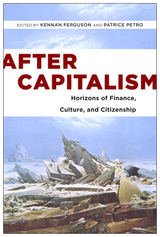

Amber has captured the human imagination for centuries, as amulets, ritual cups, and beads dating back 10,000 years attest. It is a fascinating substance, one that offers a unique intersection of the fields of paleontology, botany, entomology, and mineralogy. The fossilized resin of ancient trees, amber preserves organic material--most commonly insects and other invertebrates--and with it the shape and surface detail that are usually obliterated or hopelessly distorted during the mineralization we associate with fossils. To look at an ant or a bee caught in amber is to look not at an organism that has been turned to stone, but at the actual remains of an insect that lived hundreds of millions of years ago, remains that retain an uncanny semblance of life. Amber also offers clues to the evolution of certain behaviors, capturing such interactions as parasitism--a fruit fly with a parasitic mite still attached to it--or mutualism--a bubble of gas indicating the presence of beneficial bacteria in the gut of a termite.
Unique to this book are identification keys to the most common insect inclusions as well as practical advice on how to identify all-too-common fakes. Amber will bring the study of this and its inclusions within reach of anyone with access to amber and a good magnifying glass.

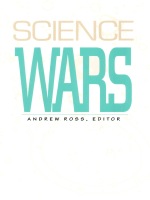
At a time when scientific knowledge is systematically whisked out of the domain of education and converted into private capital, the essays in this volume are sharply critical of the conservative defense of a value-free science. They suggest that in a world steeped in nuclear, biogenic, and chemical overdevelopment, those who are skeptical of technology are more than entitled to ask for evidence of rationality in those versions of scientific progress that respond only to the managerial needs of state, corporate, and military elites. Whether uncovering the gender-laden assumptions built into the Western scientific method, redefining the scientific claim to objectivity, showing the relationship between science’s empirical worldview and that of mercantile capitalism, or showing how the powerful language of science exercises its daily cultural authority in our society, the essays in Science Wars announce their own powerful message. Analyzing the antidemocratic tendencies within science and its institutions, they insist on a more accountable relationship between scientists and the communities and environments affected by their research.
Revised and expanded from a recent issue of Social Text, Science Wars will provoke thought and controversy among scholars and general readers interested in science studies and current cultural politics.
Contributors. Stanley Aronowitz, Sarah Franklin, Steve Fuller, Sandra Harding, Roger Hart, N. Katherine Hayles, Ruth Hubbard, Joel Kovel, Les Levidow, George Levine, Richard Levins, Richard C. Lewontin, Michael Lynch, Emily Martin, Dorothy Nelkin, Hilary Rose, Andrew Ross, Sharon Traweek, Langdon Winner
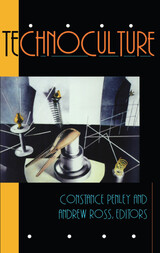

Universal Abandon was first published in 1989. Minnesota Archive Editions uses digital technology to make long-unavailable books once again accessible, and are published unaltered from the original University of Minnesota Press editions.
In recent years, the debate about postmodernism has become a full-blown, global discussion about the nature and future of society: it has challenged and redefined the cultural and sexual politics of the last two decades, and is increasingly shaping tomorrow's agenda. Postmodernist culture is a medium in which we all live, no matter how unevenly its effects are felt across the jagged spectrum of color, gender, class, sexual, orientation, region, and nationality. But it is also a culture that proclaims its abandonment of the universalist foundations of Enlightenment thought in the West. At a time when interests can no longer be universalized, the question arises: Whose interests are served by this "universal abandon"?
Universal Abandon is the first volume in a new series entitled Cultural Politics, edited by the Social Text collective. This collection tackles a wider range of cultural and political issues than are usually addressed in the debates about postmodernism—color, ethnicity, and neocolonialism; feminism and sexual difference; popular culture and the question of everyday life—as well as some political and philosophical matters that have long been central to the Western tradition. Together, the contributors provide no consensus about the politics of postmodernism; they insist, rather, that "universal abandon?" remain a question and not an answer.
The contributors: Anders Stephanson, Chantal Mouffe, Stanley Aronowitz, Ernesto Laclau, Nancy Fraser, Linda Nicholson, Meaghan Morris, Paul Smith, Laura Kipnis, Lawrence Grossberg, Abigail Solomon-Godeau, George Yudice, Jacqueline Rose, and Hal Foster.
Andrew Ross teaches English at Princeton University and is the author of The Failure of Modernism.
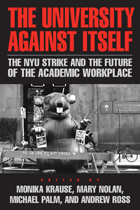
All of the contributors were either participants in the NYU strike -- graduate students, faculty, and organizers -- or are nationally recognized as writers on academic labor. They are deeply troubled by the ramifications of corporatizing universities. Here they spell out their concerns, offering lessons from one historic strike as well as cautions about the future of all universities.
Contributors include: Stanley Aronowitz, Barbara Bowen, Andrew Cornell, Ashley Dawson, Stephen Duncombe, Steve Fletcher, Greg Grandin, Adam Green, Kitty Krupat, Gordon Lafer, Micki McGee, Sarah Nash, Cary Nelson, Matthew Osypowski, Ed Ott, Ellen Schrecker, Susan Valentine, and the editors.
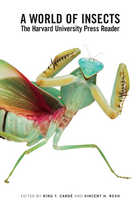
As we follow the path of a giant water bug or peer over the wing of a gypsy moth, we glimpse our world anew, at once shrunk and magnified. Owing to their size alone, insects’ experience of the world is radically different from ours. Air to them is as viscous as water to us. The predicament of size, along with the dizzying diversity of insects and their status as arguably the most successful organisms on earth, have inspired passion and eloquence in some of the world’s most innovative scientists. A World of Insects showcases classic works on insect behavior, physiology, and ecology published over half a century by Harvard University Press.
James Costa, Vincent Dethier, Thomas Eisner, Lee Goff, Bernd Heinrich, Bert Hölldobler, Kenneth Roeder, Andrew Ross, Thomas Seeley, Karl von Frisch, Gilbert Waldbauer, E. O. Wilson, and Mark Winston—each writer, in his unique voice, paints a close-up portrait of the ways insects explore their environment, outmaneuver their enemies, mate, and care for kin.
Selected by two world-class entomologists, these essays offer compelling descriptions of insect cooperation and warfare, the search for ancient insect DNA in amber, and the energy economics of hot-blooded insects. They also discuss the impact—for good and ill—of insects on our food supply, their role in crime scene investigation, and the popular fascination with pheromones, killer bees, and fire ants. Each entry begins with commentary on the authors, their topics, and the latest research in the field.
READERS
Browse our collection.
PUBLISHERS
See BiblioVault's publisher services.
STUDENT SERVICES
Files for college accessibility offices.
UChicago Accessibility Resources
home | accessibility | search | about | contact us
BiblioVault ® 2001 - 2024
The University of Chicago Press









